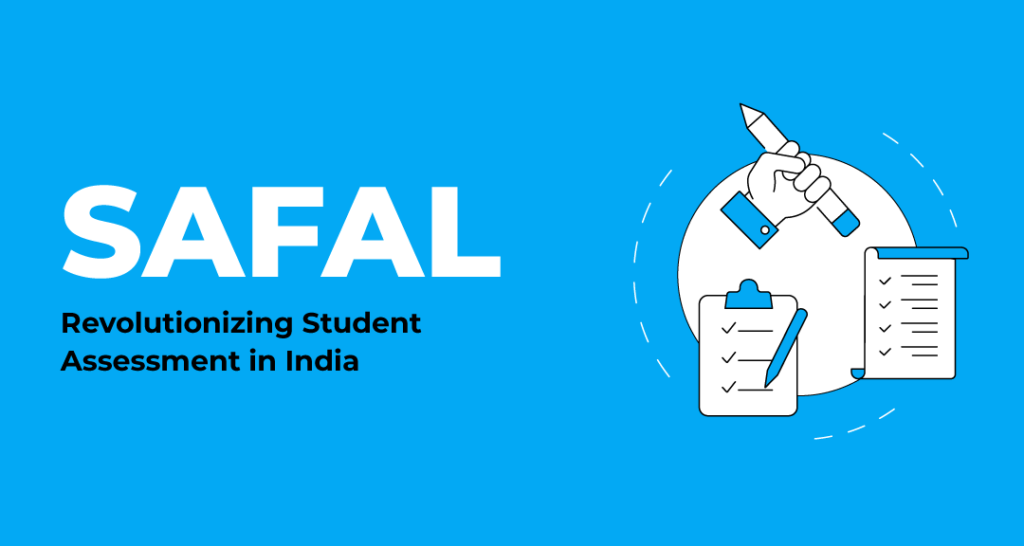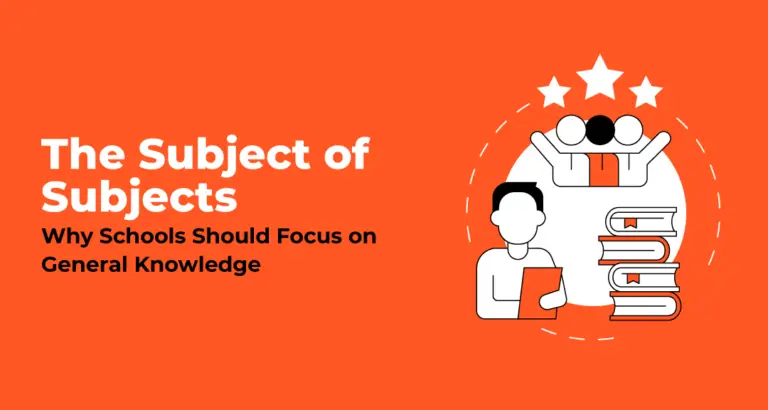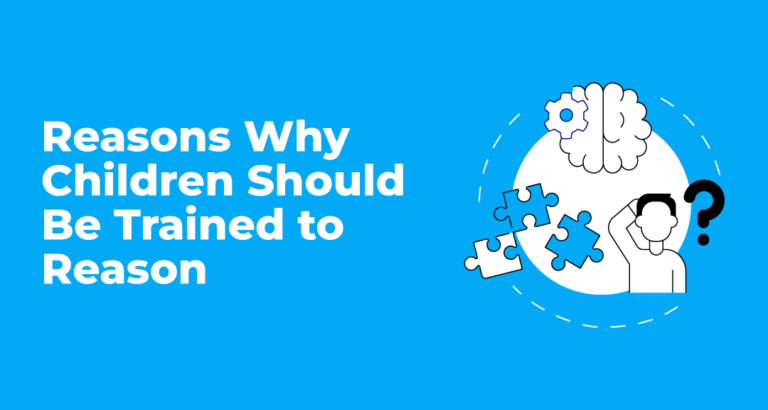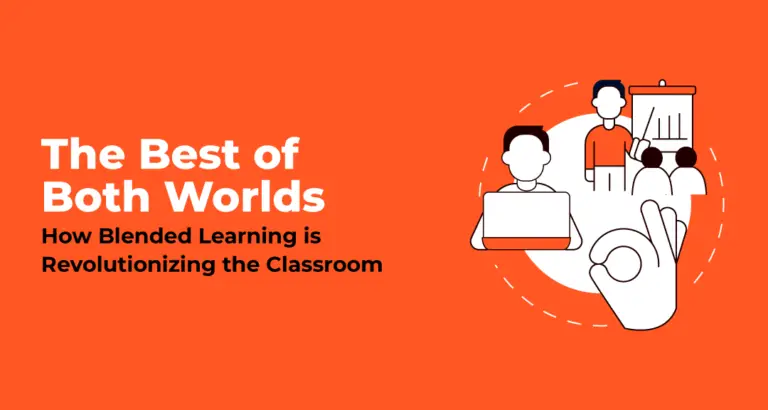SAFAL: Revolutionizing Student Assessment in India
- School Leaders
- September 14, 2024
- VOLT Learning

Schools across India have been facing the big challenge of accurately measuring the progress of students and cultivating a love for learning in them. Traditional assessment methods often fall short because they focus too heavily on rote memorization and exam performance instead of honouring marks-based education frameworks. To close in the widening gap between holistic development and competency-based learning, The Structured Assessment for Analyzing Learning (SAFAL) steps in, opening the door of a fresh hope to the educators who are grappling with the challenge day in and day out.
SAFAL was introduced by the Central Board of Secondary Education (CBSE) under India’s National Education Policy (NEP) 2020 to offer a fresh approach to student assessments. It aims to go beyond mere grading by encouraging conceptual understanding and skill-building.
Let’s explore why SAFAL was introduced, what its key objectives are, and how schools can implement it effectively.

Why do Schools Need SAFAL?
The traditional assessment system in India, which is largely centred on final exams, has been criticized for placing undue stress on students by promoting rote memorization over understanding, critical thinking and problem-solving. The focus on high scores rather than deep learning has left students unprepared for real-world challenges.
SAFAL was introduced to address these concerns by making assessments more reflective of a student’s true capabilities. In alignment with NEP 2020, SAFAL supports the vision of competency-based learning, where the emphasis is on skills like creativity, collaboration and critical thinking. It aims to assess students’ understanding of key concepts and their ability to apply knowledge rather than simply recalling facts.
This approach not only reduces academic pressure but also promotes a growth mindset among students. By focusing on real-life applications of knowledge and competencies, SAFAL better equips students for higher education and future careers.
The initiative aligns closely with the vision outlined in the National Education Policy (NEP) 2020, which emphasizes the need for holistic, competency-based learning.
SAFAL was designed to address several key issues in the existing assessment system, which are listed below.
- Over-reliance on rote learning and memorization
- High levels of stress and anxiety among students due to exam pressure
- Lack of focus on critical thinking and problem-solving skills
- Limited feedback on students’ overall development
By introducing SAFAL, the CBSE aims to create a more balanced, insightful and student-friendly assessment system that truly supports learning and growth.
Key Objectives of SAFAL
SAFAL is designed with specific objectives that serve the broader goals of the NEP. Below are the key purposes SAFAL aims to achieve.
- Competency-Based Assessment
SAFAL evaluates students based on their understanding of key concepts and ability to apply knowledge rather than on memorization. This fosters deeper learning and better prepares students for future academic and career challenges. - Holistic Student Development
SAFAL looks beyond academics and encourages students to develop a wide range of skills, such as critical thinking, creativity, problem-solving, and effective communication. This supports the development of well-rounded individuals who can thrive in various life situations. - Reducing Exam Stress
By shifting the focus from high-stakes final exams to ongoing, formative assessments, SAFAL reduces the pressure that students often feel in traditional testing environments. This creates a more supportive and enriching learning experience. - Data-Driven Insights
SAFAL generates detailed insights into students’ learning journeys. It helps teachers identify areas where students may need extra support or intervention. Schools can use these insights to improve teaching strategies and provide more targeted learning opportunities. - Encouraging Lifelong Learning
SAFAL promotes a love for learning by fostering curiosity, creativity, and critical thinking. The goal is to instil in students the desire to continue learning and growing throughout their lives. - Equal Focus on Foundational Skills
SAFAL assesses core skills like literacy and numeracy, ensuring that every student develops strong foundational knowledge, particularly in the early years of education. This enables students to build upon a solid academic base as they progress to more advanced concepts. - How to Effectively Implement SAFAL in Schools
While the objectives of SAFAL are commendable, its success ultimately depends on effective implementation at the school level. Here are some key strategies for schools to make the most of this new assessment framework. - Training Teachers on Competency-Based Assessments
The first step to successful implementation of SAFAL is to ensure that teachers are well-versed in competency-based education. Teachers need training on how to design and conduct assessments that measure students’ understanding and application of knowledge. They should also be equipped to provide constructive feedback that promotes growth and improvement. - Incorporating Ongoing Formative Assessments
SAFAL is not a one-time test but rather a continuous process of evaluation. Schools should integrate formative assessments into their daily classroom activities. This allows teachers to track students’ progress regularly and adjust their teaching strategies accordingly. - Fostering a Growth Mindset
Schools should encourage students to view assessments as opportunities for growth rather than as high-pressure exams. By promoting a growth mindset, students will be more motivated to embrace challenges, learn from mistakes, and develop resilience. - Utilizing Technology for Data Collection and Analysis
Technology plays a crucial role in the successful implementation of SAFAL. Digital platforms can help teachers gather, store, and analyze data from assessments to generate actionable insights. Schools should invest in tools that allow for easy tracking of student progress, helping teachers identify areas where students need additional support. - Focusing on Personalized Learning
SAFAL provides valuable insights into each student’s learning journey. Schools should use this data to create personalized learning paths that cater to the needs and strengths of individual students. This ensures that no child is left behind and that each student receives the support necessary to succeed. - Engaging Parents in the Process
Parental involvement is crucial for the successful implementation of SAFAL. Schools should communicate regularly with parents about their child’s progress and how SAFAL assessments work. This transparency helps parents understand the purpose behind the assessments and how they can support their child’s learning journey at home.
Closing Thoughts: Embrace the Future of Assessment with Viva Volt
SAFAL represents a significant step forward in the evolution of educational assessment. By focusing on holistic development, reducing stress, and providing more meaningful feedback, it has the potential to transform the learning experience for millions of students across India.
However, implementing such a comprehensive assessment framework can be challenging for schools, especially when it comes to resources and materials. This is where platforms like Viva Volt come into play.
Our one-login online platform offers a wide range of books and digital resources specifically designed to support the implementation of new educational initiatives like SAFAL. By leveraging Viva Volt’s curated collection of teacher guides aligned with SAFAL’s competency-based approach, schools can streamline their transition to this new framework.
As we move towards a more student-centric, skills-based education system, tools and resources that support this transition will become increasingly valuable. By embracing SAFAL and utilizing platforms like Viva Volt, schools can ensure they’re at the forefront of educational innovation, providing the students with the best possible foundation for future success.
Visit Viva Volt today to explore a comprehensive range of masterly curated learning resources and take the first step towards a student-friendly evaluation system. Together, let’s build a brighter future for education in India!



